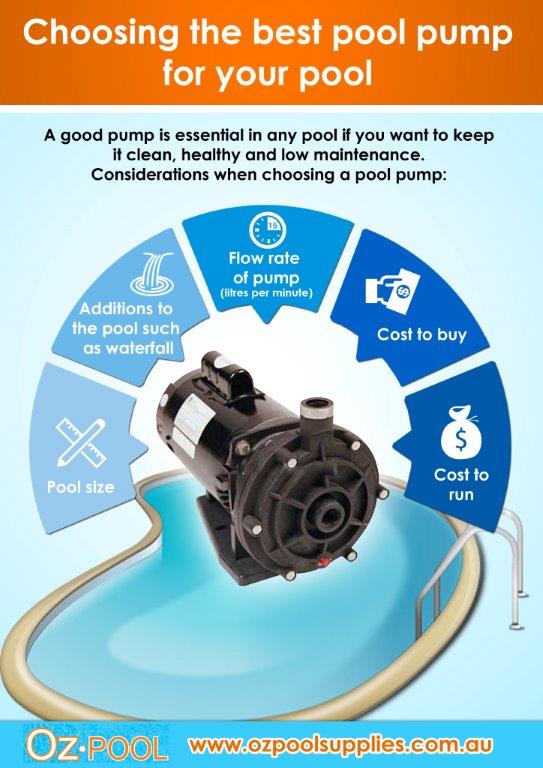We are here to help! Call us on 1800 642 688
Categories
Best Sellers
Choosing the best pool pump for your pool
A pool pump is a vital part of any pool. By definition, an electrically operated water pump is the prime circulator of water in the pool. Water is forced through a filter, cleaned of debris and then returned into the pool. A good pump is essential in any pool if you want to keep it clean, healthy and low maintenance. If you use a salt chlorinator, the pump will circulate the water through the cell and sanitize the pool.
Which pump?
All pool pumps are rated on a scale of how much water they can circulate. This is referred to either in horsepower or watts. The higher the number, the more water the pump can handle. There is also flow rate. The flow rate is a measure of how fast the water is circulated, in litres per minute. Most filtration systems will have a set maximum rate they can handle. If this limit is passed it is possible the system will get damaged, so bear this in mind while choosing your pool pump. Filter systems are generally measured in diameter of the filter, this determining the flow rate. Depending on the volume of water you plan to circulate and the rate you want it to work at, you can match the diameter to the horsepower or watts of the pump. Another consideration is turnover time. This is the time it takes the pump to completely circulate the pool water through the pump and filtration system. The number differs, but the time to roughly aim for is 6-8 hours. That means within that time the full body water has been cleaned and sanitized. If the pump is too slow, it generally means you need one with more horsepower to cope with the load. However, a slower speed may also be a good thing, as slower filters clean much more efficiently as they can catch the smaller particles that would otherwise run straight though. This also reduces resistance in the pipes, reducing energy required to run the system. Take this into consideration also while choosing.
How much do they cost to run?
The last major factor in choosing which pool pump is right for you is the cost to run the system. Residential filtration systems are generally run for 4 hours a day in winter and 8-10 hours in summer. To save electricity costs, run the pump for between 6-12 hours (or a full turnover) with the pump being controlled by an electric timer. Some pool pumps, such as The Energy efficient Three speed pumps, have multiple motor speeds to reduce power consumption at times when full power is not needed. A smaller pump will cost less to both purchase and run, but keep in mind that it still has to fit the correct flow rate and turnover times for your pool. Extras in your pool such as a waterfall or spa will put extra demands on the pump, so take this into consideration also.
Conclusion
These are just a few of the considerations when selecting a pool pump. For the best results first time, contact Oz Pool Supplies and they will help you to choose a pump that suits your needs. Knowing details such as the volume of water, flow rate and turnover times will be beneficial to speed up the process and make the task a little easier.




